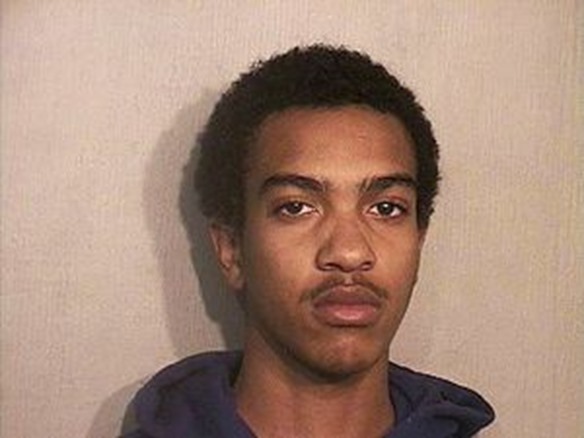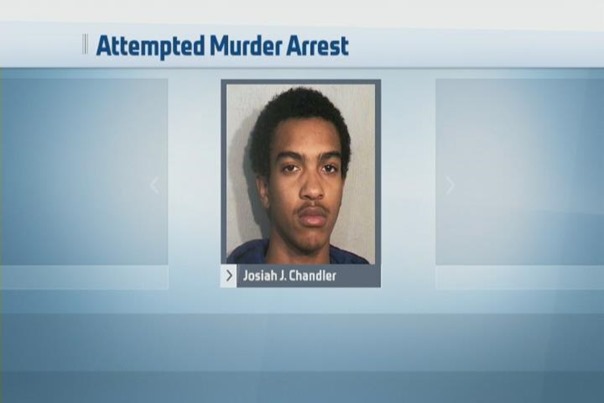Buffalo News
December 3, 2014

A Lockport shooting charged as a hate crime involves a black teenager accused of shooting a white man, Police Chief Lawrence M. Eggert said Saturday.
Josiah J. Chandler, 18, of Genesee Street, is due for a preliminary hearing Monday in City Court, when more information about the charges is expected to be released.
Details about why the incident was regarded as a hate crime will come out in court, Eggert said.
“It met all the criteria for a hate crime,” he said.
Chandler was charged Wednesday with attempted second-degree murder and other counts in the shooting of Colton Baker-Durst, 20, of Lockport.
“From what we could tell, it was a street altercation,” Eggert said. “It was not random.”
He said that the two men apparently did not know each other.

Baker-Durst was shot several times with a pistol about 12:25 a.m. Wednesday at Church and Green streets, Eggert said. The victim was listed in critical condition in Erie County Medical Center after the shooting.
Hospital officials said Saturday that the victim’s family had asked that no further information be released about Baker-Durst’s condition.
Eggert said Baker-Durst is in intensive care and that ECMC had promised to call police if there was any change in his condition. He said no such call has been received.
Chandler is being held in lieu of $250,000 bail set at his arraignment Wednesday by City Judge William J. Watson.
State law says a hate crime is one in which the criminal selects a victim or commits a crime “in whole or in substantial part because of a belief or perception regarding the race, color, national origin, ancestry, gender, religion, religious practice, age, disability or sexual orientation of a person.”
If a person is convicted of a hate crime, the potential sentence is increased from what it would be under normal circumstances.
For example, if Chandler were to be convicted of attempted murder as a hate crime, the minimum sentence would be eight years in prison instead of the normal five-year minimum for a “regular” attempted murder. The maximum term would be 25 years in either case.
Any murder conviction carries a maximum penalty of life in prison, but the minimum for a hate crime murder is 20 years instead of 15 years for a “regular” murder.
